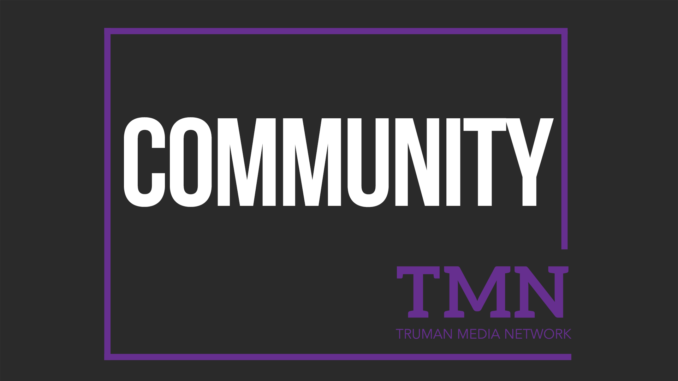
Lent is sophomore Adam Schmitz’s favorite time of year.
“I love the solemn aspect, the aesthetic that goes with the season,” Schmitz said. “The hymns are different. The church is different.”
Every year, 40 days before the celebration of Easter, many Christians observe Ash Wednesday. The previous day, many people might have celebrated Mardi Gras, or Fat Tuesday. Ash Wednesday begins the Lenten season, particularly important to many students and perhaps not as well understood by others.
Chris Korte, Catholic Newman Center director of campus ministry, explained the season’s significance for Catholics. Sitting on the couch in the Newman Center main lounge, he leaned slightly forward and spoke with quiet enthusiasm.
Korte said Lent is about preparing for Easter, the day that commemorates Jesus Christ’s resurrection from the dead.
“It’s like a bookend,” Korte said. “Ash Wednesday is one end, and Easter is the other end — and so it’s all part of a greater piece.”
Korte said Lent is a time for examining life, seeing where there’s room for improvement and being more open God’s love and mercy. In the history of Christianity, there is a tradition of a 40-day preparation for baptism. Lent is also related to the historical process of re-entrance into the church for those who had renounced Christianity under persecution, said Korte.
Korte also said Lent is a time to repent but not about suffering to earn God’s love.
“God already loves us, but how do we let that love and His grace work in us?” Korte said. “. . . But it’s more than giving up candy. It’s giving up selfishness — that’s the real thing.”
Korte said Ash Wednesday gets its name from the practice of marking churchgoers’ foreheads with the sign of the cross. Korte said ashes are a reminder of human frailty and a way of signifying death to sin. Korte also said the signing with the cross harkens back to Easter and baptism, when people are signed with a cross of oil.
Schmitz, who practices Catholicism and follows many of the traditions Korte explained, spoke about how the season helps him grow personally.
“I am the kind of person who — I’m never happy with myself unless I’m perfect, and oftentimes I let that get in the way of my even being good,” Schmitz said. “And I find that Lent always comes at the time when I most need it in my self-loathing or my perfectionism and says, ‘hey, you can’t be perfect right away, and possibly never even in this lifetime, but let’s be good, let’s work on this area and be better than we’ve been.’ And so my experience is that Lent is a welcome opportunity to cut out what’s bad and replace it with what’s good, and I couldn’t do without, honestly.”
Schmitz also spoke about how Catholic Lenten dietary restrictions can provide an opportunity to share his faith with other students. Catholics usually abstain from meat on Fridays, particularly during Lent.
“That becomes an opportunity for dialogue, and sometimes people are like, ‘Well, why don’t you just not eat meat the rest of the year and be vegan or vegetarian or whatever?’” said Schmitz. “But the point is that I think it’s a sacrifice, and I’m supposed to miss out on something good, something that is helpful and enjoyable to me.”
Unlike Schmitz, senior Emily Merkle is Methodist. She said that Methodists might choose to give something up or work to improve themselves in some other way, but there is no obligation to do anything specific. Merkle said she started getting more serious about Lent in her sophomore year of high school.
“Every year since I have either picked something to give up or picked a habit to work on cultivating, and a lot of that has been focusing on health and getting my body in better shape, I guess, so I can then turn that around and use that to serve God,” Merkle said. “So I’ve given up pop before, which was horrible because I have caffeine running through my veins … I’ve given up sugar. This year I’m working on returning to not cursing, which has been a struggle.”
Merkle said being a religious person at a public university has had its difficult moments, but those moments have helped to strengthen her faith. She said meeting people outside her faith has been a good experience for her.
“I guess at times it can be challenging, when you’ve got a lot of people around you who are like, ‘Oh, I don’t believe the same thing, and I think it’s kind of silly,’” Merkle said. “I’ve learned a lot and learned to look deeper at my faith and understand what it is that I believe about my faith and why it is that I believe that way.”
